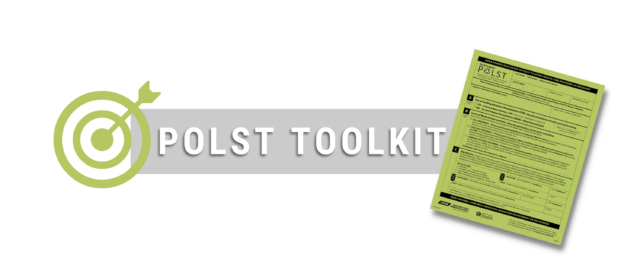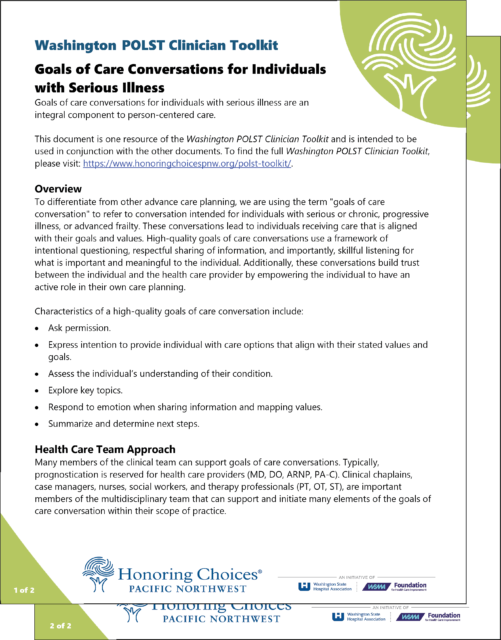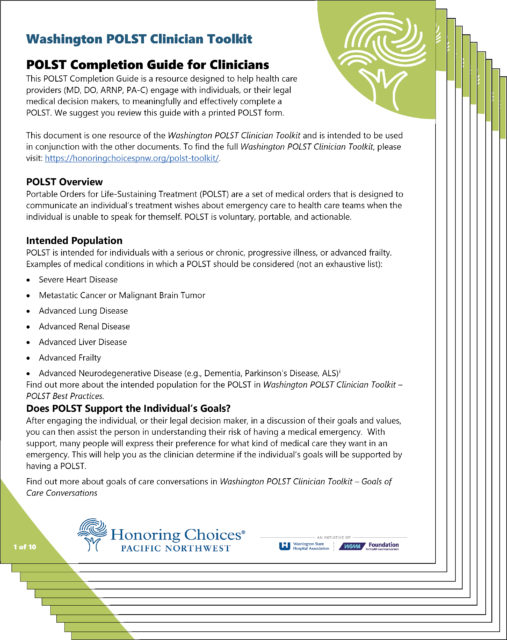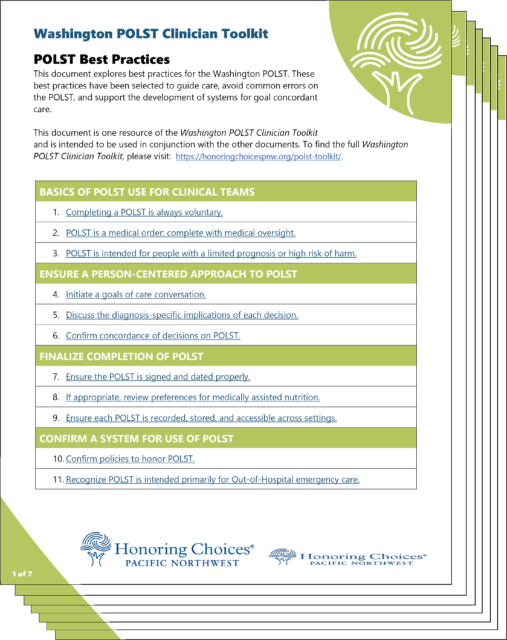
Welcome to the Washington POLST Clinician Toolkit
This toolkit is designed to assist health care teams identify who should be offered a POLST, how to apply clinical decision-making to know when and how to offer POLST, how to avoid pitfalls in the clinical use of POLST, and how to ensure a POLST reflects an individual’s goals. This toolkit contains resource materials to explain how to use a goals of care conversation in conjunction with POLST to provide whole-person care and ensure individuals with serious illness receive care that is consistent with their values and goals.
This toolkit was developed by Honoring Choices Pacific Northwest with the support and cooperation of the Washington POLST Task Force, the Washington End of Life Coalition, the Washington State Medical Association, and the Washington State Hospital Association.
For a video introduction to the toolkit, watch the WSMA Continuing Professional Development webinar, “The Washington POLST Clinician Toolkit: Best Practices to Ensure Person-Centered Care.” This activity has been approved for AMA PRA Category 1 Credit™. Watch video and claim CME credit.
Please visit wsma.org/POLST to order the Washington POLST, find POLST brochure translations, and access additional webinars around the Washington POLST.





